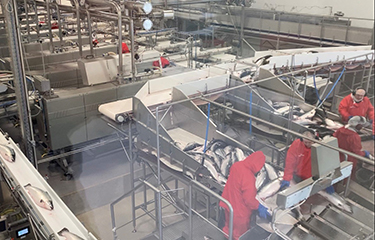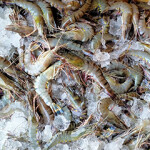“Somber day” at Bakkafrost after 140 processing workers laid off

Struggling with slower-than-expected growth of fish at its farms and a new salmon tax implemented by the Faroese government, Bakkafrost laid off 140 of its value-added processing workers on 8 November.
Earlier in November, Glyvrar, Faroe Islands-based Bakkafrost Group announced a decision to delay some planned harvests after recording slower growth and other biological challenges. In a statement, Bakkafrost CEO Regin Jacobsen blamed the layoffs on an increase in the revenue tax on the salmon farming industry approved in May 2023.
“As a result of changes in the Faroese revenue tax, Bakkafrost has adjusted the strategy for contracted value-added production to reduce contract exposure for 2024,” Jacobsen said. “For 2024, Bakkafrost has signed contracts covering around 9 percent of the expected harvest volumes in the Faroe Islands and Scotland combined, compared to 22 percent at same time last year. Over the last couple of months, we have had a reasonable hope that new political changes would be made in the Faroese revenue tax, but this is not the case at the moment. We hoped that we could agree a sufficient amount of long-term contracts, so we could keep all our employees. But the conditions have changed, especially since the new revenue tax has been implemented. We had also hoped that new political changes would come in time as promised, but unfortunately we were let down.”
Jacobsen said he did not expect to conduct further layoffs, despite previously warning in September as many as 400 jobs could be at risk. He said the company is moving from two shifts to one at its Glyvrar facility, and that it was no longer profitable for the company to produce value-added products.
“These taxes undermine the foundations of our activities, and they have severely affected our competitiveness on the international market,” Jacobsen said.
Representatives of the Faroe Islands immigration office, its unemployment office, and its tax authority were present at the company’s factory on 8 November, when the layoffs were announced. A psychologist and a priest were also available for workers who requested their counsel, according to KVF. Kári Egholm Jacobsen, the head of Bakkafrost’s specialty production unit, said the atmosphere felt akin to a funeral, but said the company hoped to rehire some or all of the laid-off employees in one year’s time.
“This was a somber day for all of us. It obviously hurts to let go of 140 highly valued employees,” he said. “However, these added taxes force us to make these job cuts because otherwise Bakkafrost would encounter massive financial losses. This would go against our duty to our shareholders, our staff, and the Faroese economy as a whole.”
Gemma Johannesen, one of the impacted workers and a native of the Philippines, said she will look for other jobs in the seafood-processing sector.
“It’s sad, but we have to accept it. We are most worried about our relatives who are under the working visa because they are the ones who will be greatly affected,” she said.
Photo by Cliff White/SeafoodSource






Share